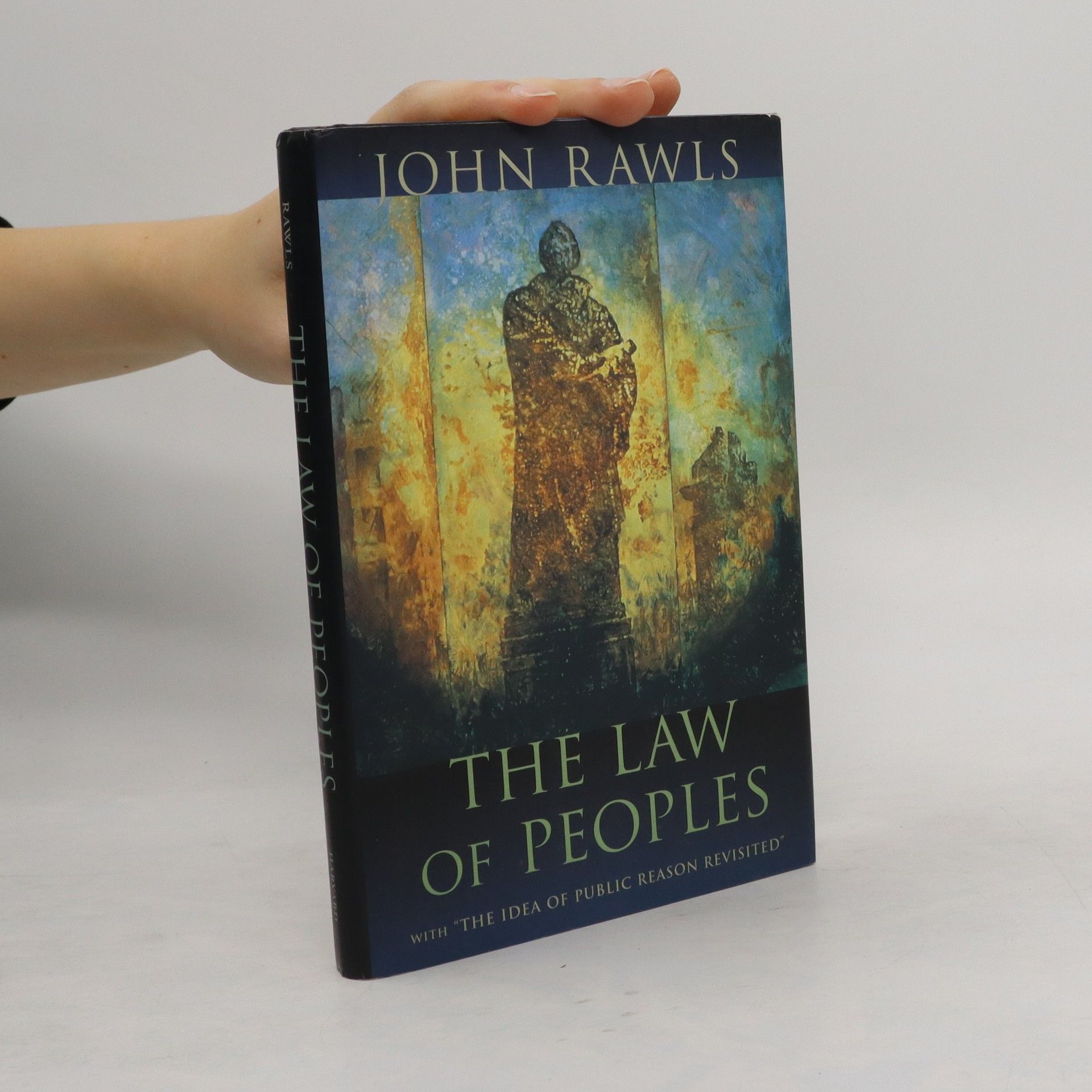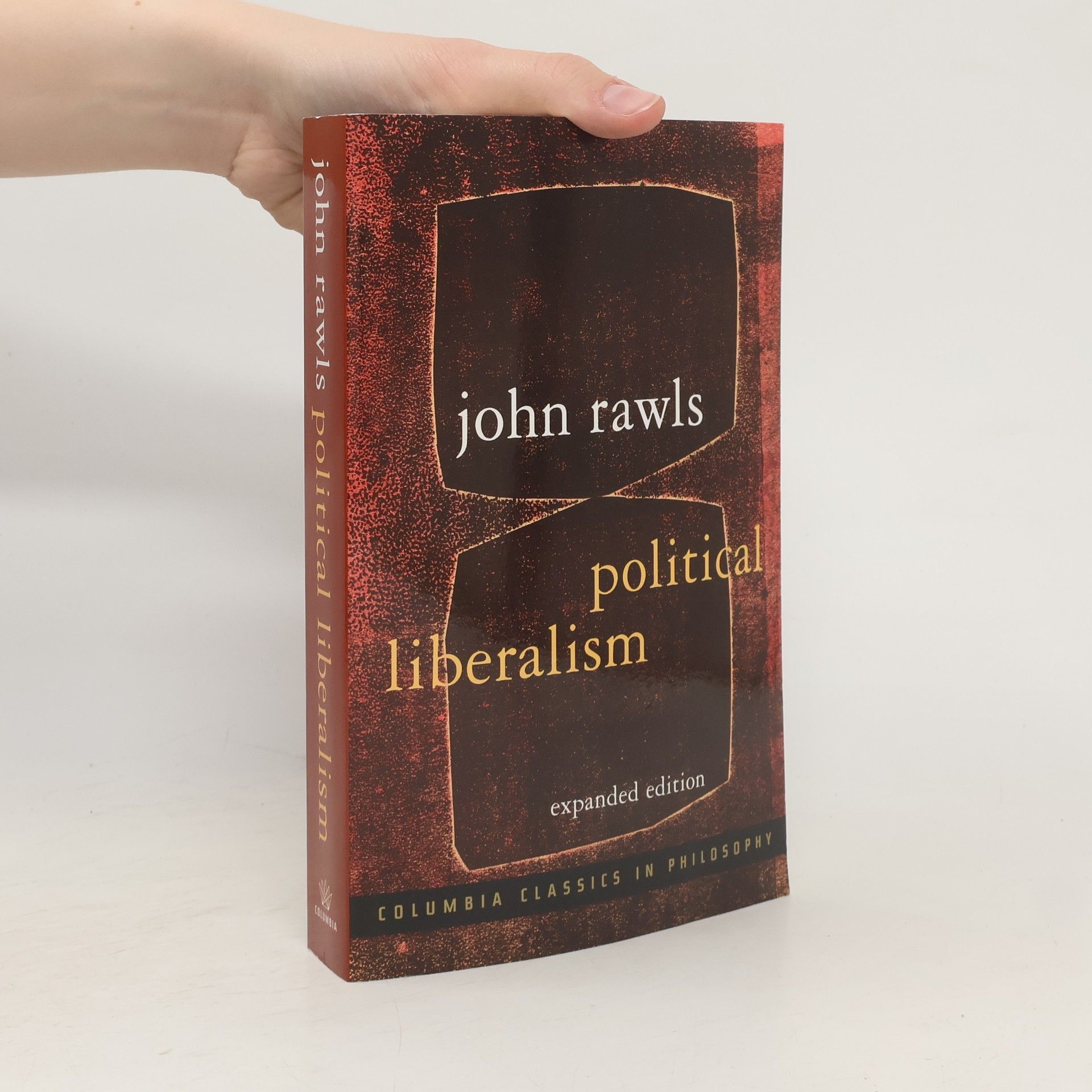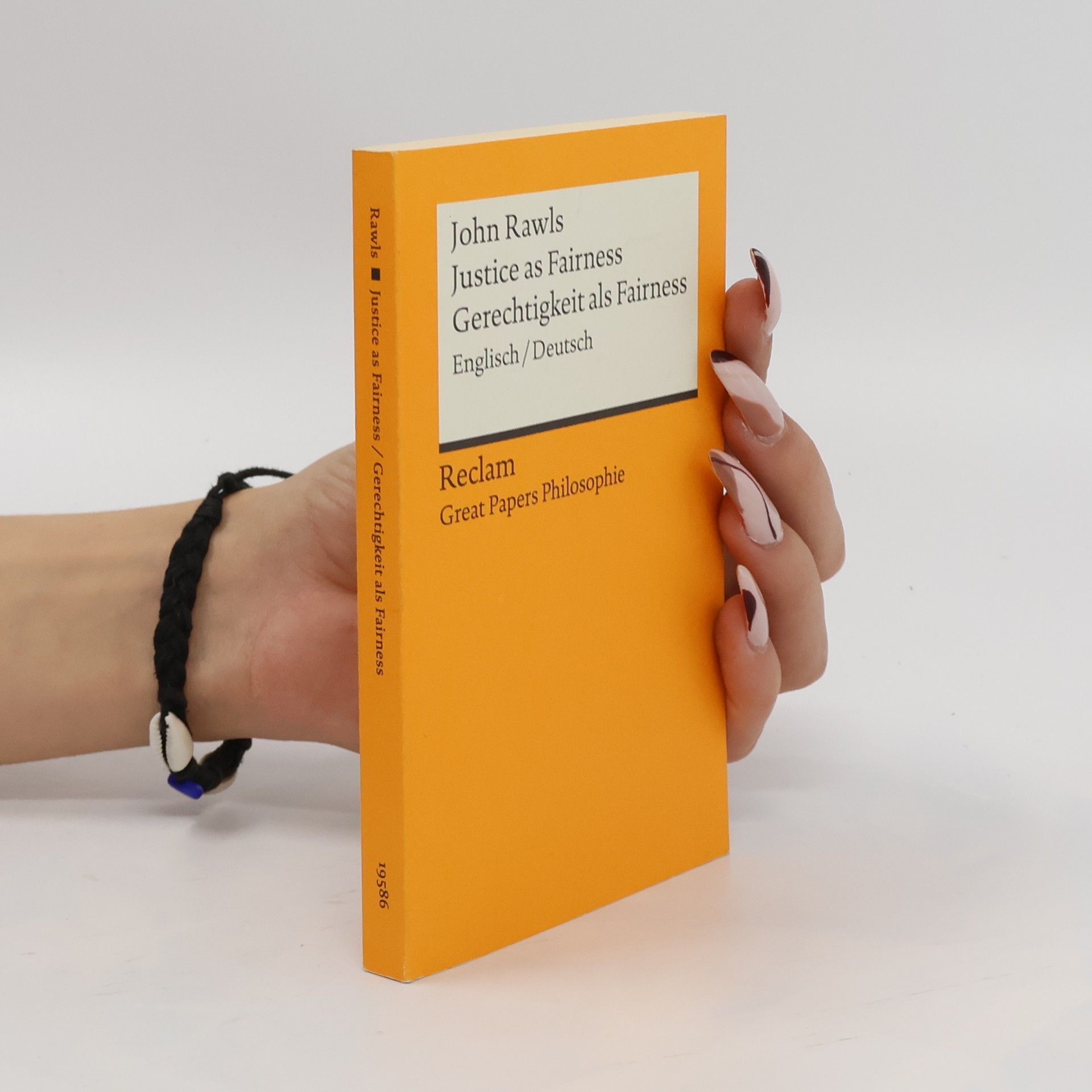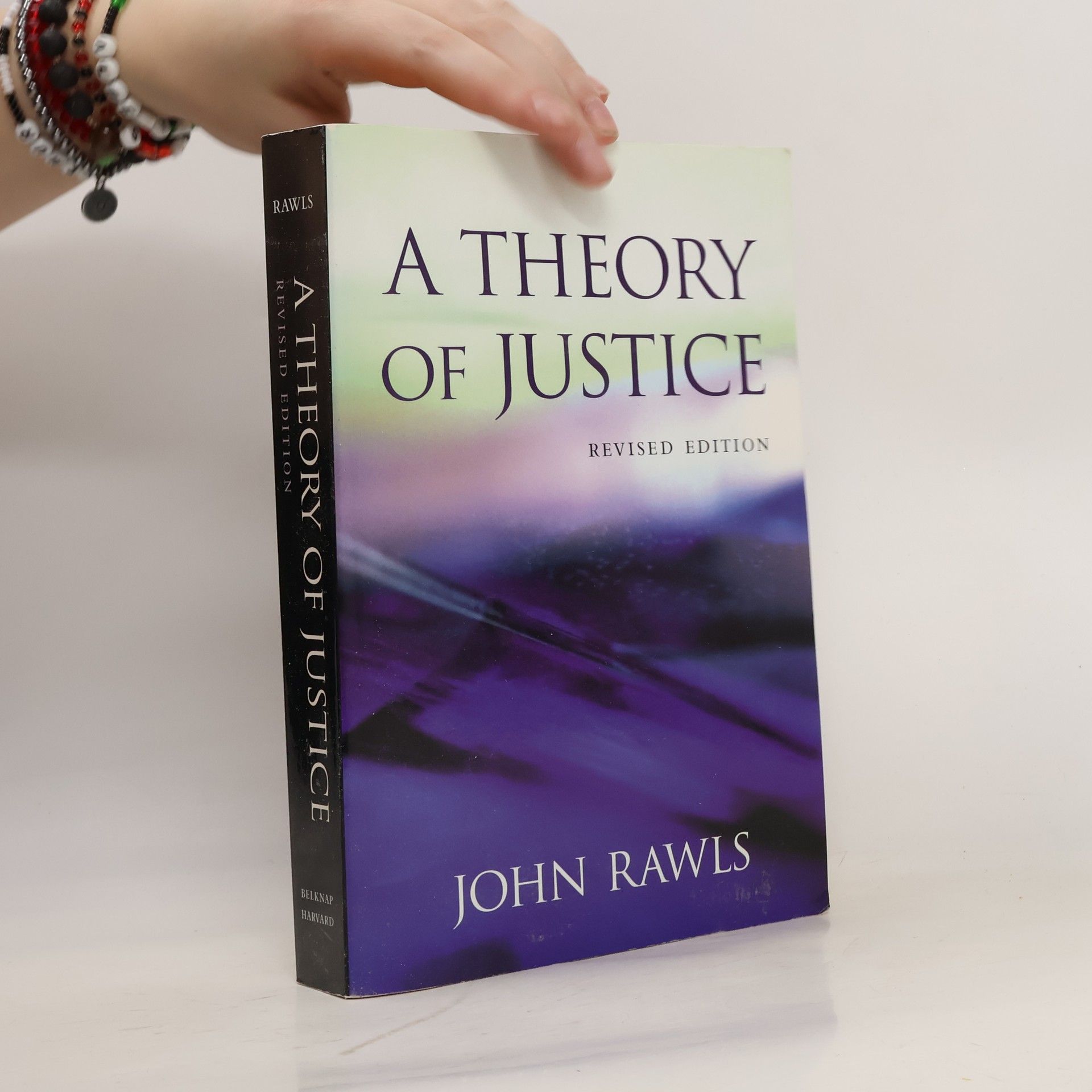John Rawls Libri
John Rawls è stato una figura di spicco nella filosofia morale e politica la cui opera principale è considerata un testo fondamentale nel campo. Il suo lavoro parte dall'argomento che i principi di giustizia più ragionevoli sono quelli che tutti accetterebbero da una posizione equa. Rawls impiega esperimenti mentali, come il famoso velo dell'ignoranza, per stabilire accordi equi in cui tutti sono situati imparzialmente come uguali, determinando così i principi di giustizia sociale. Il suo pensiero ha aiutato una generazione a riaccendere la fede nella democrazia stessa.







Offers readers an account of the liberal political tradition from a scholar viewed by many as the greatest contemporary exponent of the philosophy behind that tradition.
A collection of the lectures on moral philosophy given by John Rawls over three decades of teaching at Harvard. This book looks at thinkers such as Leibniz, Hume and Kant, in their struggle to define the role of a moral conception in human life. schovat popis
Political Liberalism
- 496pagine
- 18 ore di lettura
This book continues and revises the ideas of justice as fairness that John Rawls presented in "A Theory of Justice" but changes its philosophical interpretation in a fundamental way. That previous work assumed what Rawls calls a "well-ordered society," one that is stable and relatively homogenous in its basic moral beliefs and in which there is broad agreement about what constitutes the good life. Yet in modern democratic society a plurality of incompatible and irreconcilable doctrines--religious, philosophical, and moral--coexist within the framework of democratic institutions. Recognizing this as a permanent condition of democracy, Rawls asks how a stable and just society of free and equal citizens can live in concord when divided by reasonable but incompatible doctrines?This edition includes the essay "The Idea of Public Reason Revisited," which outlines Rawls' plans to revise "Political Liberalism, " which were cut short by his death."An extraordinary well-reasoned commentary on "A Theory of Justice."..a decisive turn towards political philosophy."--"Times Literary Supplement"
A Theory of Justice
- 560pagine
- 20 ore di lettura
Since it appeared in 1971, John Rawls's A Theory of Justice has become a classic. The author has now revised the original edition to clear up a number of difficulties he and others have found in the original book. Rawls aims to express an essential part of the common core of the democratic tradition--justice as fairness--and to provide an alternative to utilitarianism, which had dominated the Anglo-Saxon tradition of political thought since the nineteenth century. Rawls substitutes the ideal of the social contract as a more satisfactory account of the basic rights and liberties of citizens as free and equal persons. "Each person," writes Rawls, "possesses an inviolability founded on justice that even the welfare of society as a whole cannot override." Advancing the ideas of Rousseau, Kant, Emerson, and Lincoln, Rawls's theory is as powerful today as it was when first published.
The law of peoples : with "The idea of public reason revisited"
- 199pagine
- 7 ore di lettura
This book consists of two parts: the essay "The Idea of Public Reason Revisited," first published in 1997, and "The Law of Peoples," a major reworking of a much shorter article by the same name published in 1993. Taken together, they are the culmination of more than fifty years of reflection by John Rawls on liberalism and on some of the most pressing problems of our times
A Theory of Justice, Revised Edition
- 560pagine
- 20 ore di lettura
An alternative cover edition for this ISBN can be found here. Since it appeared in 1971, John Rawls’s A Theory of Justice has become a classic. The author has now revised the original edition to clear up a number of difficulties he and others have found in the original book. Rawls aims to express an essential part of the common core of the democratic tradition—justice as fairness—and to provide an alternative to utilitarianism, which had dominated the Anglo-Saxon tradition of political thought since the nineteenth century. Rawls substitutes the ideal of the social contract as a more satisfactory account of the basic rights and liberties of citizens as free and equal persons. “Each person,” writes Rawls, “possesses an inviolability founded on justice that even the welfare of society as a whole cannot override.” Advancing the ideas of Rousseau, Kant, Emerson, and Lincoln, Rawls’s theory is as powerful today as it was when first published.
Justice as fairness : a restatement
- 240pagine
- 9 ore di lettura
This book originated as lectures for a course on political philosophy that Rawls taught regularly at Harvard in the 1980s. In time the lectures became a restatement of his theory of justice as fairness, revised in light of his more recent papers and his treatise Political Liberalism (1993). As Rawls writes in the preface, the restatement presents "in one place an account of justice as fairness as I now see it, drawing on all [my previous] works." He offers a broad overview of his main lines of thought and also explores specific issues never before addressed in any of his writings.Rawls is well aware that since the publication of A Theory of Justice in 1971, American society has moved farther away from the idea of justice as fairness. Yet his ideas retain their power and relevance to debates in a pluralistic society about the meaning and theoretical viability of liberalism. This book demonstrates that moral clarity can be achieved even when a collective commitment to justice is uncertain.
The Law of Peoples
- 210pagine
- 8 ore di lettura
This work consists of two parts: 'The Idea of Public Reason Revisited', published in 1997, and 'The Law of Peoples', a reworking of an article published in 1993. Taken together, they are the culmination of more than 50 years of reflection on liberalism and on some pressing problems of our times. schovat popis
Politische Gerechtigkeit muß fair sein. Dies war die Kernaussage von John Rawls' Versuch einer Erneuerung der Theorie vom Gesellschaftsvertrag aus dem Jahre 1971. Binnen weniger Monate avancierte sein Werk zu den meistdiskutierten moral- und staatsphilosophischen Programmen der neueren Zeit. Rawls' Gerechtigkeitspostulate und der Aspekt ihrer Durchführbarkeit in bezug auf Institutionen wie auch die Ansprüche an den einzelnen sind als Entwurf einer Gesellschaft, in der das Rechte zugleich als das Gute anerkannt wird, noch immer in der Diskussion. 32 Jahre nach der Veröffentlichung seines fulminanten vertragsrechtlichen Gedankenexperiments, Eine Theorie der Gerechtigkeit, erschien der Neuentwurf, in dem Rawls auf Einwände und Fragen seiner Kritiker reagiert und der nun als Taschenbuch vorliegt. »Das Vermächtnis des amerikanischen Philosophen Rawls.« Die Zeit



